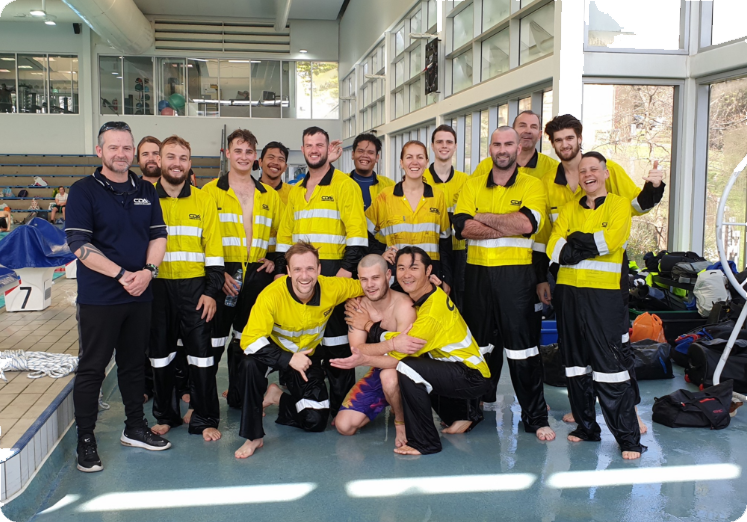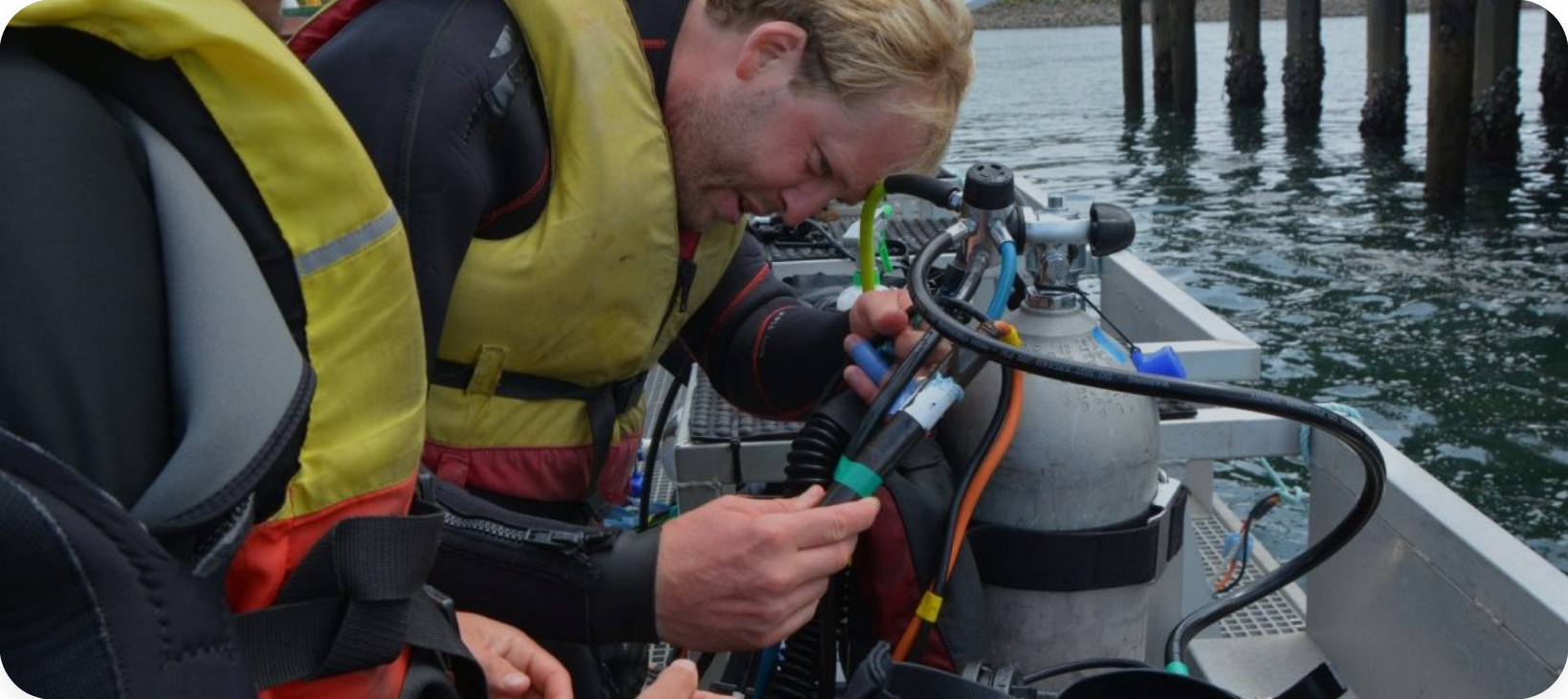I finished the ADAS part three course about two months ago and it was honestly the best thing I could’ve done. I am on the big bucks and living an awesome life now and owe a lot to CDA. By big bucks, I mean the first day after the course ended. I was working and earning $800 a day. I have no contacts in the industry and here I am, making more in two days than I would In a week.
Before the course, I was already a diesel mechanic, driving cranes for many years. I was on an ok hourly wage and kept asking myself why take the risk of doing a three month course, when I might not even get a good job, or heck, any job. What if I have to go back to being a mechanic and just wasted three months of my life. I almost enrolled a year or so ago, but just couldn’t pull the trigger. And being a commercial diver stayed a pipedream.
The reason I did the course, was the team in the office, talked to me for an hour about diving and how they will help find me a job. He told me that every single person able to work in Australia who trained with them last year found employment, not only did they find employment , but they found jobs working where they wanted, if they wanted to work on a fish farm, boom on a fish farm, if they wanted a job in construction work, boom civil was where they found a job. I thought this seemed to good to be true, but hey life is short. So I said screw it, lets do the course. I booked on the first course of the year, part one, two and three, nervous but excited at the same time.
On my last week of ADAS part three, I still hadn’t found a job. The others on part three had, the few guys who left on part two, yes they were on less than the other guys on part three would be, but they all had jobs. And I hadn’t, this was literally my fear, wasting three months to do a course, and not having a job. I had no prospects, no one I called was looking for divers. I was damn nervous and spoke with the owner, tutors and office team.
The next day, I had an email. I was offered a job earning $800 a day working onshore in Melbourne. I couldn’t stop smiling. I am not kidding, one phone call from CDA, and I went from $33 an hour to $800 a day. One phone call and a three month course doubled what I could earn before.
I can not stress this enough, CDA is awesome. They will find you a job. They will work with you and teach you to a higher standard than any other school in Australia. They use all offshore equipment. There is no one else you should do your course with and no reason not to do part three. I am just a guy who went from a good wage, to making the big bucks.
Thanks you to everyone in the CDA team, you are all awesome.
MELBOURNE BASED DIVER







